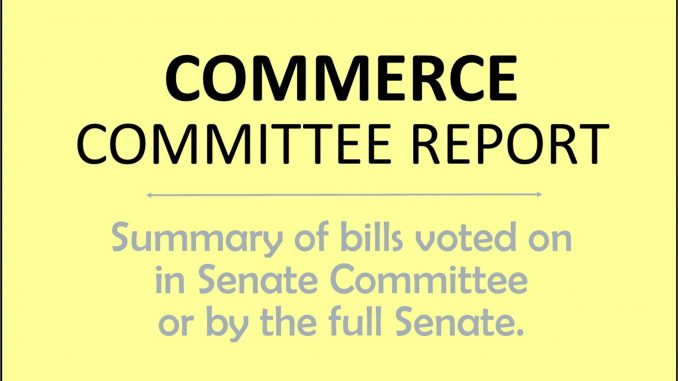
SF 2311 – Public utilities;
HF 2234 – Foreclosure timeline.
FLOOR ACTION:
SF 2311 significantly deregulates gas and electric public utilities in Iowa. It removes or restricts oversight by the Iowa Utilities Board (IUB) on a wide range of issues, including energy efficiency, rate increases, coal plant emissions controls and consumer protections. It requires the IUB to review energy efficiency plan modification requests within 60 days after filing; issue orders approving or rejecting regulated emissions management projects within 90 days after filing; review any tariffs or rates imposed by rate-regulated public utilities within 30 days of filing; and specify in advance the ratemaking principles that will apply whenever a rate-regulated public utility requests advanced ratemaking for construction, investment or implementation of an emerging energy technology. It also authorizes the IUB to initiate a formal proceeding if reasonable grounds exist for investigating a public utility’s request to modify an energy efficiency plan to achieve projected annual costs below a two-percent threshold. To perform the duties associated with the legislation, including the shorter time frame for existing duties under current law, the IUB would need to hire two additional technical staff, at a cost of $228,924 annually.
The bill exempts electric cooperative corporations and electric public utilities having fewer than 10,000 customers from regulated rates. It also prohibits the IUB from requiring gas and electric public utilities to adopt energy efficiency plans that result in projected annual costs in excess of two percent of the utility’s annual rate revenue.
The energy efficiency caps will result in fewer programs offered, such as popular rebate programs to install efficient commercial lighting or replace inefficient commercial heating and cooling systems, fewer measures in programs, or fewer incentives available for measures and programs, or a combination of all of these. Caps could also result in cancellation of incentives or programs mid-year and significant uncertainty about whether you can get a rebate for your efficient equipment, such as a new HVAC system (residential or commercial). Making efficiency programs lower quality and less workable will result in less participation and higher energy costs for consumers and businesses.
The bill takes solar price discrimination oversight of municipal utilities away from the IUB and makes other kinds of discrimination legal. While there is a section in the code that prohibits municipal utilities from discriminating against solar by charging higher rates, there are no parameters defined or basis to challenge a municipal utility for discriminating against a person who wants to install solar as it relates to time to respond or inter-connection fees for solar customers to connect with the utility. The only recourse for the solar customer is to challenge the action of the municipal utility in court.
Iowa has some of the lowest energy rates in the Midwest and the country, while developing one of the strongest clean energy economies. Energy efficiency and rebate programs have saved Iowa consumers billions of dollars, avoided the need to build costly new power plants, attracted businesses looking for low electric rates and created thousands of Iowa jobs. This bill undermines many of the policies that have led to Iowa’s cost-effective clean energy leadership. For example, it separates energy efficiency and demand-response programs. The Iowa Consumer Advocate (Utilities) has expressed concerns about many facets of the proposal, and Iowa families and businesses will likely see substantial utility rate increases.
[4/30: 28-20, party line ( Absent: D. Johnson, Zumbach)]
HF 2234 shortens the timeframe for residential foreclosures. The federal Dodd-Frank Act added a 120-day waiting period before a financial institution can start a foreclosure proceeding. Taking that into account, this proposal shortens Iowa’s foreclosure waiting periods (12 months to six months, and six months to three months.) The three-month waiting period applies to foreclosures in which the financial institution agrees to forgive the debt, which is the situation in most Iowa foreclosures. The six-month waiting period applies to the few foreclosure cases where the financial institution has not agreed to waive the debt. Both the three-month and six-month wait times do not begin until the 120-day Dodd-Frank waiting period has expired. Even with this legislation, Iowa will continue to have one of the longer foreclosure timeframes in the country The original bill inadvertently shortened redemption periods for agricultural mortgages as well as residential. The Senate unanimously adopted an amendment to restore redemption periods for agricultural mortgages to current law, which is a 12-month/six-month timeframe depending on whether the lender wants to waive rights to a deficiency judgment.
The House added a se
